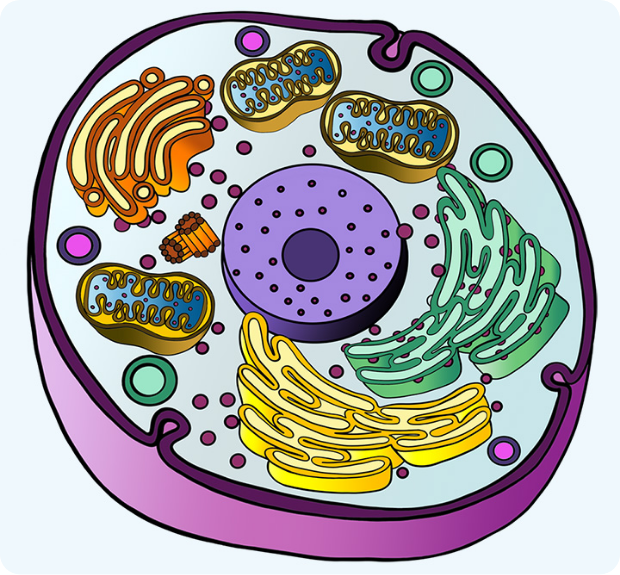

nPOD KQ Group: Prohormone processing defect in T1D pancreas
 The goal of this group is to improve understanding of the pathophysiologic mechanisms contributing to insulin deficiency in type 1 diabetes (T1D), which is crucial for optimizing approaches to disease prevention and treatment. Increased beta cell prohormones have been observed in various stages of T1D, suggesting that dysfunctional prohormone processing may contribute to insulin deficiency and T1D progression. Historically, limited access to human pancreatic tissue prevented comprehensive analysis of prohormone secretory dynamics with tissue-level phenotyping of prohormone expression and processing, but advancements like nPOD and innovative technologies are changing this.
The goal of this group is to improve understanding of the pathophysiologic mechanisms contributing to insulin deficiency in type 1 diabetes (T1D), which is crucial for optimizing approaches to disease prevention and treatment. Increased beta cell prohormones have been observed in various stages of T1D, suggesting that dysfunctional prohormone processing may contribute to insulin deficiency and T1D progression. Historically, limited access to human pancreatic tissue prevented comprehensive analysis of prohormone secretory dynamics with tissue-level phenotyping of prohormone expression and processing, but advancements like nPOD and innovative technologies are changing this.
Multiple investigators from this working group have described increases in beta cell prohormones in T1D, both at the level of the islet and in circulation. This body of work shows that circulating proinsulin relative to C-peptide is increased before, at the time of onset, and in longstanding T1D. Another beta cell prohormone, pro-islet amyloid polypeptide (proIAPP), has also recently been demonstrated to be elevated in plasma from individuals with T1D. Furthermore, proinsulin remains detectable in the blood of individuals with longstanding T1D who no longer secrete detectable C-peptide, indicating abnormal secretion patterns, possibly through alternative pathways (such as within islet exosomes).
Another key question to be answered is the physiologic relevance of increases in intact vs. partially processed proinsulin. Pancreatic islets from islet autoantibody-positive individuals and individuals with recent onset T1D exhibit increased proinsulin/insulin areas. Subcellular localization of proinsulin is also altered in these donors compared to nondiabetic controls. Analysis of samples from individuals with longstanding T1D suggests that, similar to proinsulin in circulation, almost all residual islets in individuals with T1D contain proinsulin, even islets lacking detectable C-peptide. Islet amyloid deposition is also observed in islets from some individuals with T1D. Moreover, islets from donors with T1D exhibit reduced mRNA and protein expression of prohormone processing enzymes. Although intact proinsulin has been identified as the predominant species responsible for elevations in circulating proinsulin in T2D, this relationship remains to be tested in individuals with T1D and could identify important differences in the pathophysiology of altered proinsulin release between these two forms of diabetes.
The overarching hypothesis of the nPOD prohormone group is that dysfunctional beta cell prohormone expression and release may contribute to T1D progression. By using living tissue slices, the group will test dynamic insulin secretion and tissue-level prohormone expression and processing in the same tissue. The group will also investigate the effects of different stress conditions induced in vitro (e.g., inflammatory stress vs. endoplasmic reticulum stress) and whether treatment with chemical chaperones could improve prohormone processing and insulin secretion in T1D donors.
Leaders

Dr. Teresa Rodriguez-Calvo
Helmholtz Diabetes Center Institute of Diabetes Research, Germany
Dr. Teresa Rodriguez-Calvo is the group leader of the Type 1 Diabetes Pathology Research Unit at the Institute of Diabetes Research, Helmholtz Munich. Her research focuses on understanding the early changes that occur in the pancreas in individuals at risk of developing type 1 diabetes, specifically investigating whether there is a defect in beta cell function and a disruption in insulin synthesis before clinical onset. She is particularly interested in whether this disruption leads to the accumulation of incorrect forms of proinsulin in beta cells, which might be recognized by the immune system. This recognition could make beta cells more visible to the immune system and affect how the immune system interacts with and recognizes these defective beta cells.

Dr. Emily K. Sims
Indiana University, USA
Dr. Emily K. Sims is an associate professor of Pediatrics at Indiana University School of Medicine where she also serves as the Assistant Director of the Wells Center for Pediatric Research and an Associate Director of the IU Medical Scientist Training Program. Dr. Sims is an NIH-funded physician scientist specializing in pediatric endocrinology with a research focus on identification of mechanisms and biomarkers of intrinsic beta cell dysfunction contributing to development of type 1 diabetes (T1D), clinical measurements of beta cell function that can be used to understand T1D heterogeneity and responses to disease-modifying therapies, and application of therapeutics aimed at improving beta cell health in T1D.